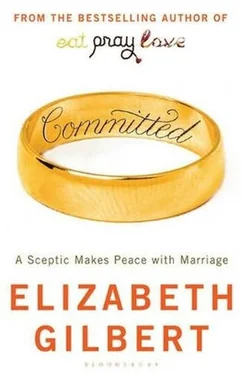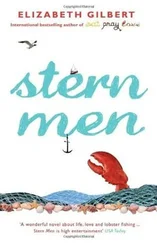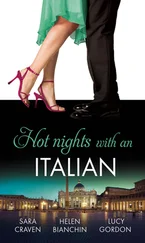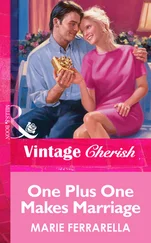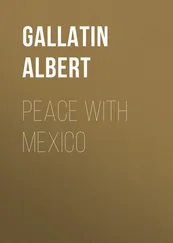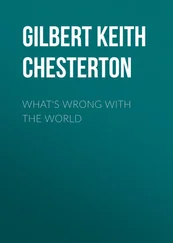And even now, even though the Arrivals board clearly announced that his flight had landed, I was perversely afraid that his flight had not landed, and that it would never land. What if he didn’t get off the plane? What if he got off the plane and they arrested him again? Why was it taking him so long to get off the plane? I scanned the faces of every passenger who came down that Arrivals corridor, searching for Felipe in the most preposterous of forms. Irrationally, I had to look twice at every single old Chinese lady with a cane and every single toddling child, just to make doubly sure that it wasn’t him. I was having trouble breathing. Like a lost kid, I almost ran over to a policeman and asked for help-but help with what?
Then, suddenly, it was him.
I would know him anywhere. The most familiar face in the world to me. He was running down the Arrivals corridor, looking for me with the same anxious expression that I was surely sporting myself. He had on the same clothes he’d been wearing the day he’d been arrested back in Dallas ten months earlier-the same clothes he’d been wearing pretty much every day of this whole year, all over the world. He was a bit tattered around the edges, yes, but somehow he seemed mighty to me nonetheless, his eyes burning with the effort to spot me in the crowd. He was not an old Chinese lady, he was not a toddling child, he was not anybody else. He was Felipe-my Felipe, my human, my cannonball-and then he saw me and he barreled down on me and almost knocked me over with the sheer force of his impact.
“We have circled and circled till we have arrived home again, we two,” wrote Walt Whitman. “We have voided all but freedom and all but our own joy.”
And now we could not let go of each other, and for some reason I simply could not stop sobbing.
Within a handful of days, we were married.
We got married in our new home-in that odd, old church-on a cold Sunday afternoon in February. It’s very convenient, it turns out, to own a church when one has to get married.
The marriage license cost us twenty-eight dollars and a photocopy of one utility bill. The guests were: my parents (married forty years); my Uncle Terry and Aunt Deborah (married twenty years); my sister and her husband (married fifteen years); my friend Jim Smith (divorced for twenty-five years); and Toby the family dog (never married, bi-curious). We all wished that Felipe’s children (unmarried) could have joined us, too, but the wedding happened on such short notice that there was no way to get them over in time from Australia. We had to make do with a few excited phone calls, but could not risk a delay. We needed to seal this deal immediately to protect Felipe’s place on American soil with an inviolable legal bond.
In the end, we had decided that we wanted a few witnesses at our wedding after all. My friend Brian was right: Marriage is not an act of private prayer. Instead, it is both a public and a private concern, with real-world consequences. While the intimate terms of our relationship would always belong solely to Felipe and me, it was important to remember that a small share of our marriage would always belong to our families as well-to all those people who would be most seriously affected by our success or our failure. They needed to be present on that day, then, in order to emphasize this point. I also had to admit that another small share of our vows, like it or not, would always belong to the State. That’s what made this a legal wedding in the first place after all.
But the smallest and most curiously shaped share of our vows belonged to history-at whose impressively large feet we all must kneel eventually. Wherever you have landed in history determines to a large extent what your marriage vows will look like and sound like. Since Felipe and I happened to have landed right there, in that little Garden State mill town, in the year 2007, we decided not to write our own idiosyncratic personal promises (we had done that back in Knoxville anyhow), but to acknowledge our place in history by repeating the basic, secular vows of the State of New Jersey. It just felt like an appropriate nod to reality.
Of course, my niece and nephew attended the wedding, too. Nick, the theatrical genius, was on hand to read a commemorative poem. And Mimi? She had cornered me a week earlier and asked, “Is this going to be a real wedding or not?”
“That all depends,” I’d said. “What do you think constitutes a real wedding?”
“A real wedding means there will be a flower girl,” Mimi replied. “And the flower girl will be wearing a pink dress. And the flower girl will be carrying flowers. Not a bouquet of flowers, but a basket of rose petals. And not pink rose petals, either, but yellow rose petals. And the flower girl will walk in front of the bride, and she will throw the yellow rose petals on the ground. Will you be having anything like that?”
“I’m not sure,” I said. “I guess it just depends on whether we can find a girl somewhere who might be capable of doing that job. Can you think of anyone?”
“I suppose I could do it,” she replied slowly, looking away with a terrific show of false indifference. “I mean, if you can’t find anyone else…”
So it turned out that we did have a real wedding, even by Mimi’s exacting standards. Aside from our extremely decked-out flower girl, though, it was a pretty casual affair. I wore my favorite red sweater. The groom wore his blue shirt (the clean one). Jim Smith played his guitar, and my Aunt Deborah-a trained opera singer-sang “La Vie en Rose” just for Felipe’s benefit. Nobody seemed to mind that the house was still unpacked and largely unfurnished. The only room that was fully usable thus far was the kitchen, and that was only so that Felipe could prepare a wedding lunch for everyone. He’d been cooking for two days, and we had to remind him to take off his apron when it came time to actually get married. (”A very good sign,” my mother noted.)
Our wedding vows were administered by a nice man named Harry Furstenberger, the mayor of this small New Jersey township. When Mayor Harry first walked in the door, my father asked him directly, “Are you a Democrat or a Republican?” because he knew that this would matter to me.
“I’m a Republican,” said Mayor Harry.
There followed a moment of tense silence. Then my sister whispered, “Actually, Liz, for this kind of thing, you sort of want a Republican. Just to make sure the marriage really sticks with Homeland Security, you know?”
So we proceeded.
You all know the gist of the standard American wedding vows, so I need not repeat them here. Suffice it to say, we repeated them there. Without irony or hesitation, we exchanged our vows in the presence of my family, in the presence of our friendly Republican mayor, in the presence of an actual flower girl, and in the presence of Toby the dog. In fact, Toby-sensing an important moment here-curled up on the floor right between Felipe and me just as we were sealing these promises. We had to lean over the dog in order to kiss each other. This felt auspicious; in medieval wedding portraits, you will often see the image of a dog painted between the figures of a newly wed couple-the ultimate symbol of fidelity.
By the end of it all-and it really doesn’t take very much time, considering the magnitude of the event-Felipe and I were finally legally married. Then we all sat down for a long lunch together-the mayor and my friend Jim and my family and the kids and my new husband. I did not have any way of knowing with certainty on that afternoon what peace and contentment were awaiting me in this marriage (reader: I know it now), but I did feel calm and grateful all the same. It was a lovely day. There was much wine and there were many toasts. The balloons that Nick and Mimi had brought with them drifted slowly up to the dusty old church ceiling and bobbed there above us all. People might have lingered even longer, but by dusk it had begun to sleet, so our guests gathered together their coats and belongings, eager to get on the road while the getting was still good.
Читать дальше
